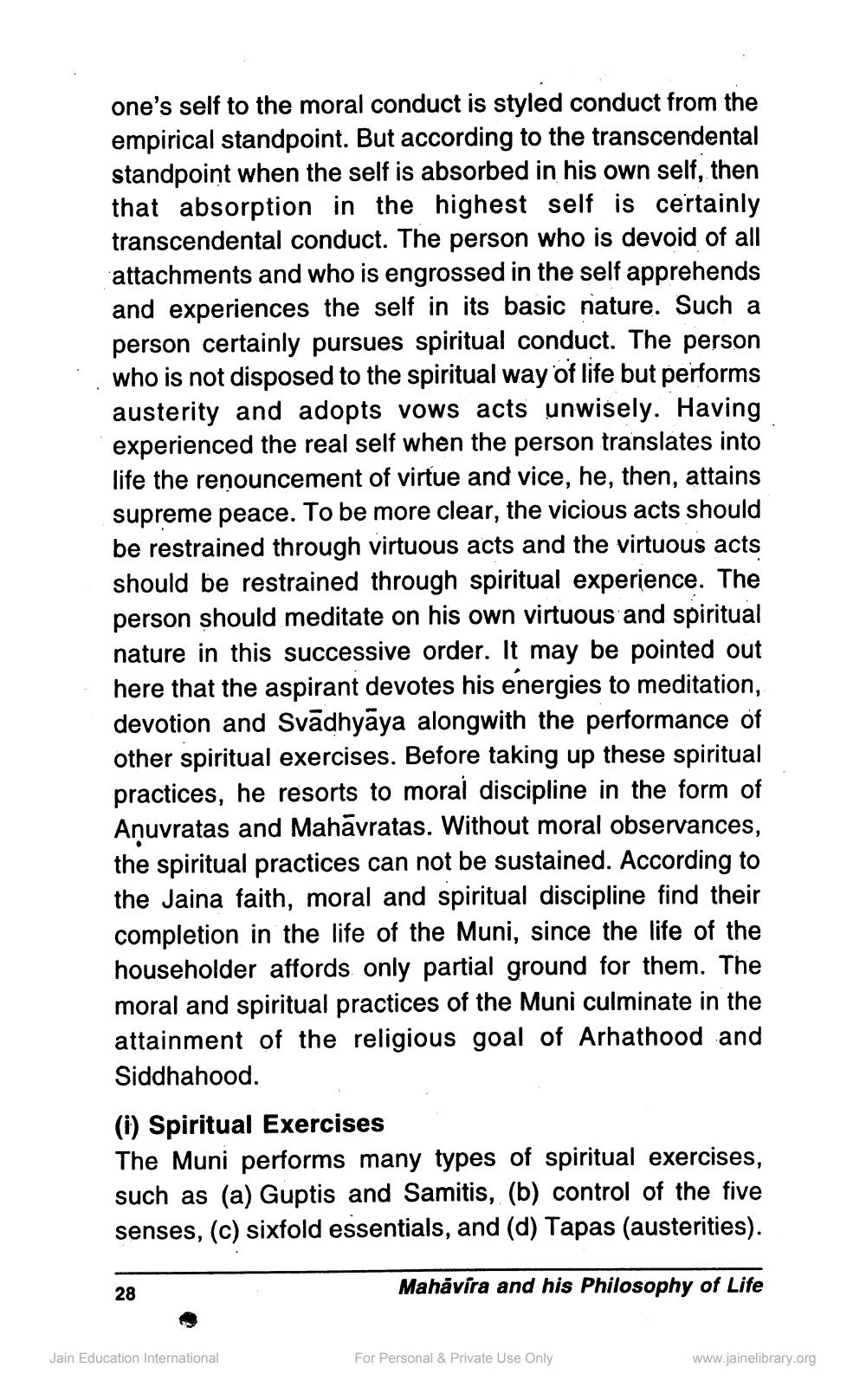________________
one's self to the moral conduct is styled conduct from the empirical standpoint. But according to the transcendental standpoint when the self is absorbed in his own self, then that absorption in the highest self is certainly transcendental conduct. The person who is devoid of all attachments and who is engrossed in the self apprehends and experiences the self in its basic nature. Such a person certainly pursues spiritual conduct. The person who is not disposed to the spiritual way of life but performs austerity and adopts vows acts unwisely. Having experienced the real self when the person translates into life the renouncement of virtue and vice, he, then, attains supreme peace. To be more clear, the vicious acts should be restrained through virtuous acts and the virtuous acts should be restrained through spiritual experience. The person should meditate on his own virtuous and spiritual nature in this successive order. It may be pointed out here that the aspirant devotes his energies to meditation, devotion and Svadhyāya alongwith the performance of other spiritual exercises. Before taking up these spiritual practices, he resorts to moral discipline in the form of Anuvratas and Mahāvratas. Without moral observances, the spiritual practices can not be sustained. According to the Jaina faith, moral and spiritual discipline find their completion in the life of the Muni, since the life of the householder affords. only partial ground for them. The moral and spiritual practices of the Muni culminate in the attainment of the religious goal of Arhathood and Siddhahood. (i) Spiritual Exercises The Muni performs many types of spiritual exercises, such as (a) Guptis and Samitis, (b) control of the five senses, (c) sixfold essentials, and (d) Tapas (austerities).
28
Mahavira and his Philosophy of Life
Jain Education International
For Personal & Private Use Only
www.jainelibrary.org




